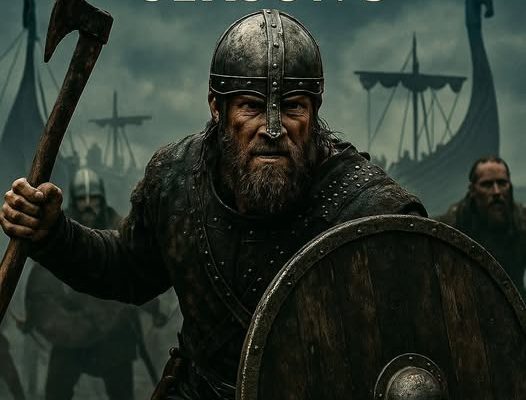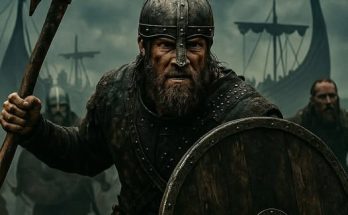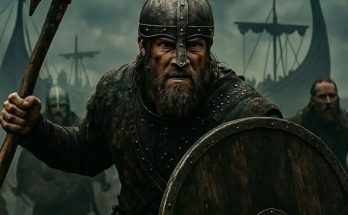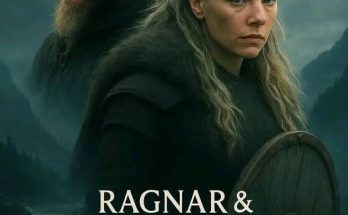The world of epic battles, legendary voyages, and the clash between tradition and change is once again set to return to Netflix as the streaming platform has officially confirmed the release date for the third season of Vikings: Valhalla. This news comes as both a relief and an excitement for fans who have been anxiously waiting to know when the next chapter of the saga will drop, especially after the dramatic conclusion of the second season that left countless storylines hanging in the balance. As a historical drama that has captivated viewers with its powerful storytelling, breathtaking visuals, and exploration of Norse culture, Vikings: Valhalla has cemented itself as a worthy successor to the original Vikings series that ran for six successful seasons. The announcement of season three not only continues the story of key figures such as Leif Erikson, Freydís Eiríksdóttir, and Harald Sigurdsson but also reassures viewers that the vision for this spin-off remains strong and ambitious.
When Netflix first introduced Vikings: Valhalla in 2022, it did so under the weight of high expectations. The original Vikings series, created by Michael Hirst, had built a massive fanbase with its gritty depiction of Norse warriors, mythologies, and legendary figures such as Ragnar Lothbrok and his sons. While fans initially wondered whether a new series set a century after Ragnar’s time could recapture that same magic, Valhalla quickly proved it could stand on its own. By focusing on characters rooted in history like Leif, often celebrated as the man who reached North America long before Columbus, and Harald Hardrada, who later became a contender for the English throne, the show wove together both personal struggles and sweeping historical events in a way that both educated and entertained. This blend of drama and history has made it a must-watch not only for those who loved the original Vikings but also for new audiences hungry for high-stakes storytelling.
Season three promises to pick up where the second left off, with characters scattered across different parts of the known world, each grappling with their destiny. For Leif, the explorer whose courage and intellect have made him a central figure, season three is expected to show even more of his journeys and the conflicts he faces as he seeks to reconcile his father’s legacy with his own path. Freydís, his sister, has been one of the show’s most compelling figures, embodying both the spirit of Norse traditions and the fierce independence of women who carved their place in history. Her role as a leader among those who still cling to the old pagan faith against the rise of Christianity offers a fascinating dynamic that is sure to deepen as the show progresses. Meanwhile, Harald, the ambitious warrior with eyes set on kingship, faces challenges that are as political as they are personal, creating a storyline that could eventually tie into the great events of European history.
Netflix has confirmed that season three will be the final chapter of Vikings: Valhalla, and this knowledge adds both excitement and a bittersweet edge to the release date announcement. Fans now know that the upcoming season will not only continue the narrative but also bring closure to the arcs that have been building since the beginning. This finality raises the stakes for every character, making each episode all the more significant. It also places extra responsibility on the showrunners and writers, who must ensure that they deliver a conclusion that is satisfying, respectful of history, and true to the spirit of what made the Vikings universe so popular in the first place.
The production value of Vikings: Valhalla has consistently been one of its strongest selling points. From vast landscapes that capture the rugged beauty of Scandinavia to battle scenes that are choreographed with raw intensity, the series has matched the high bar set by its predecessor. Season three is expected to raise that standard even higher, especially since it must provide a grand send-off. Netflix has invested heavily in ensuring the show maintains cinematic quality, giving viewers the sense that they are watching not just a television series but a living, breathing epic. The attention to detail in costume design, historical settings, and shipbuilding has already drawn praise, and with this being the final season, fans can expect the visuals to be nothing short of spectacular.
Another reason Vikings: Valhalla resonates with so many viewers is its exploration of the tension between tradition and change. Set during a time when Christianity was spreading rapidly across Europe, often clashing with the old pagan religions, the series presents characters who must navigate a shifting cultural landscape. This theme is especially relevant to modern audiences, who can relate to the struggles of holding onto heritage while adapting to a changing world. Freydís’ role as a defender of the old ways highlights the resilience of tradition, while Harald’s ambitions tie him to the Christian-dominated political structures of Europe. Leif, meanwhile, represents exploration and the idea of moving beyond old boundaries to find new worlds. These themes give the series depth beyond its action sequences and allow it to spark reflection about human history and identity.
The confirmation of the season three release date also speaks to Netflix’s confidence in the series as part of its broader strategy. In a crowded streaming market where original content often determines subscriber loyalty, shows like Vikings: Valhalla play a crucial role in keeping audiences engaged. Historical dramas are expensive to produce, but when done well, they create a lasting impact that extends beyond entertainment into education and cultural discussion. By announcing the date and ensuring fans know the final chapter is coming, Netflix keeps the momentum alive, maintaining buzz in a competitive environment.
For fans, the wait for season three has been filled with speculation about what will happen to the main characters. Will Leif continue his journey westward, laying the foundation for his eventual fame as the explorer who reached Vinland? Will Freydís manage to safeguard the survival of her people’s traditions in the face of overwhelming change? And will Harald achieve his dream of power, or will fate cut him down before he reaches the throne he seeks? These questions linger as some of the most compelling threads of the series, and their resolution will define how viewers remember Vikings: Valhalla in the long run.
Another element that has added to the anticipation is the strong cast that brings these characters to life. Sam Corlett’s portrayal of Leif, Frida Gustavsson’s commanding performance as Freydís, and Leo Suter’s embodiment of Harald have all been praised for capturing both the humanity and the legendary qualities of their roles. Their chemistry, determination, and emotional depth have helped anchor the series even in its most chaotic and violent moments. As the actors return for this final season, audiences can expect performances that rise to the occasion of concluding such a sweeping narrative.
The announcement also reminds viewers of the larger legacy of the Vikings franchise. When Michael Hirst first launched the original series, many doubted whether a historical drama about Norse warriors would find mainstream appeal. Yet the success of Vikings proved not only that audiences were hungry for such stories but also that these narratives could be told with nuance, blending myth and history in a way that resonated globally. Vikings: Valhalla carries that torch forward, ensuring that the stories of Leif, Freydís, and Harald are not forgotten but reimagined for a new generation.
As the release date approaches, fans are encouraged to revisit the earlier seasons to prepare for the final journey. This is not only a way to refresh the memory of key events and character arcs but also a chance to fully appreciate the scope of what the series has accomplished. The themes of exploration, ambition, faith, and survival remain as relevant today as they were centuries ago, and the show’s ability to bring those ideas to life is part of what makes it special.
The excitement around season three’s release is also a reminder of the role television plays in shaping how we understand history. While no dramatization can perfectly capture the past, series like Vikings: Valhalla open doors for audiences to learn more about the real people and events that inspired the story. After watching, many viewers find themselves delving deeper into Norse history, Viking exploration, and the cultural shifts of the medieval world. In this sense, the series not only entertains but educates, leaving a lasting impact that goes beyond the screen.
With the countdown now underway to the premiere of Vikings: Valhalla season three, anticipation is building for what promises to be a powerful conclusion. Netflix has confirmed that this will be the final chapter, and fans can rest assured that it will bring together all the themes, conflicts, and characters in a way that honors the legacy of the Vikings universe. From the battles that define kingdoms to the personal struggles of faith, loyalty, and ambition, season three will encapsulate everything that has made the show a standout in modern television.
As fans prepare for the release, there is a sense of gratitude for the journey so far and excitement for the conclusion that awaits. The story of Leif, Freydís, and Harald has always been about more than swords and ships; it has been about humanity, destiny, and the eternal push to carve one’s name into history. With Netflix confirming the release date, the saga of Vikings: Valhalla is ready to write its final chapter, ensuring that the legend of the Vikings continues to echo across the ages.



